This article was medically reviewed by Luba Lee, FNP-BC, MS. Luba Lee, FNP-BC is a Board-Certified Family Nurse Practitioner (FNP) and educator in Tennessee with over a decade of clinical experience. Luba has certifications in Pediatric Advanced Life Support (PALS), Emergency Medicine, Advanced Cardiac Life Support (ACLS), Team Building, and Critical Care Nursing. She received her Master of Science in Nursing (MSN) from the University of Tennessee in 2006.
There are 31 references cited in this article, which can be found at the bottom of the page.
This article has been viewed 11,735 times.
A chronic cough can be a real annoyance and sometimes, a sign of another condition. You can try home remedies and over-the-counter medications, but if your cough persists, you should see your doctor. They will likely recommend a treatment appropriate to whatever condition is causing your cough, which will hopefully bring you some relief!
Steps
Trying Home Remedies
-
1Stay hydrated to soothe your throat and cough. Drink plenty of water and other liquids to thin any mucus you may have, which will help your cough. Make sure you're getting at least the recommended amount of water per day: 15.5 cups (3.7 L) for men and 11.5 cups (2.7 L) for women.[1] Try sipping warm drinks like tea, broth, or apple cider if your throat is also bothering you.[2]
- Try keeping a glass or bottle of water nearby at all times to remind you to drink!
- Drinking hot water can be especially helpful for loosening up chest congestion. The water should be comfortably hot—not hot enough to scald your mouth.
-
2Prop your head up at night to help with drainage. Nasal drainage can cause a chronic cough, so allowing that to flow away may help. In addition, acid reflux can also cause a cough, and propping your head up can help reduce your symptoms.[3]
- Try a wedge pillow to prop your upper body up.
Advertisement -
3Soothe your cough with hard candies or cough drops. You can purchase over-the-counter cough drops to help with your cough. However, hard candies are cheaper and may work just as well. Try peppermints, for instance, or hard candies with honey in them.[4]
- Read the directions on your cough drops to see if you should limit how many you eat in a day.
-
4Drink chicken or bone broth. A hot chicken broth is not only hydrating and soothing on the throat, but can also help loosen up any mucus that might be contributing to your cough.[5] Heat up some pre-packaged broth or make your own by simmering some chicken bones and aromatic vegetables in water for a few hours.[6]
- If you’re a vegetarian or vegan, a hot vegetable broth can also bring soothing relief.
-
5Breathe in steam from a shower or boiled water for congestion. Take a hot, steamy shower, and focus on breathing in the steam as much as possible, particularly through your nose. Another option is to pour boiling water into a bowl. Cover your head and the bowl with a towel and breathe in the steam.[7]
- If you have nasal congestion, the mucus dripping down into your throat could be causing the cough. Steam can help break up that congestion.
- Running a humidifier can also provide some relief, particularly in the winter when the air is drier.[8]
-
6Try chest percussion to loosen up mucus in your lungs. Chest percussion involves clapping your chest and back with your cupped hands to help unclog your airways.[9] Ask your doctor, a nurse, or a physical therapist to demonstrate the proper technique.
- You may need the help of a partner or an electronic massager for the best results.
-
7Swallow 1.5 teaspoons (7.4 mL) of honey before bed. This can be given to children as young as 1-years-old (but not younger!). It can be as effective as a cough syrup for helping you sleep through the night and reducing coughing.[10]
- Try to swallow the honey as is for the best effects. However, you can also add a little honey to tea if you'd like.
- If you’d rather not drink the honey straight or in tea, add the honey and some lemon to a glass of hot water and drink that before you go to bed.
-
8Take over-the-counter pain relievers for throat pain. You can take NSAIDs like ibuprofen or aspirin. Acetaminophen is fine, as well. Read the directions for how much you can take in 24 hours and always talk to your doctor before beginning a medication.[11]
- Persistent coughs can lead to sore throats, which pain relievers will help with.
- If you take cough medicine, read the label to see if it contains a pain reliever. If it does, don't take it separately, as that could lead to an overdose.
-
9Pick an over-the-counter cough medication such as guaifenesin. Cough medications, including cough syrups, that contain guaifenesin may help with your cough. Guaifenesin helps by making it easier for you to cough up any mucus that’s in your lungs. Dextromethorphan is another option, which you can take separately or in addition to guaifenesin.
- Some cough medicines work by making your cough more productive, while others suppress the cough reflex. Some medications, such as Mucinex DM, combine both of these properties.
- If you’re an adult, you can take up to 1200 mg of guaifenesin a day. Take this medication with a full glass of water.
- Always check to see if the medication you're taking has both already before adding an additional medication.
Seeing the Doctor
-
1Make an appointment to see a doctor if the cough continues to linger. A persistent cough can be a sign of certain diseases, such as asthma, GERD, and bronchitis. If you continue to have symptoms for more than 3 weeks, you should see a doctor to help you figure out what's wrong.[12]
-
2Expect a physical exam. The doctor will listen to your chest to see what your breathing sounds like. They may ask you to try to cough, and they'll also likely look in your ears, nose, and eyes.[13]
- While performing the exam, the doctor will ask you questions about your medical history, too, so be prepared to answer them.
-
3Ask if any of your medications could be causing your cough. A few medications can contribute to a cough. For instance, angiotensin-converting enzyme inhibitors (ACE inhibitors) may give you a persistent cough; this medication is used to treat heart disease and high blood pressure. Discuss this medication and talk about whether any others you're on may be causing the issue.[14]
- If one of your medications may be the problem, talk to your doctor about whether switching to something else is an option.
-
4Talk about the possibility that you have allergies. A persistent dry cough is a common symptom of allergies. If your cough is caused by allergies, you might notice it more during certain times of the year or when you’re in particular environments (e.g., in a house with pets or around certain types of trees or plants).[15] Ask your doctor if an allergy might be contributing to your symptoms.
- Your doctor may do skin tests or blood tests to identify the specific triggers of your allergy symptoms.
- If you do test positive for allergies, your doctor might suggest a variety of treatment options, including medications, allergy shots, and strategies for avoiding your allergy triggers.[16]
-
5Discuss whether diagnostic tests are appropriate. Typically, if you aren't displaying other symptoms, the doctor will recommend a treatment rather than diagnostic tests. However, if this is your second or third trip to the doctor's or your displaying other symptoms, such as fatigue, hacking up mucus, or having trouble breathing, then they may want to run other tests.[17]
- X-rays and CT scans are common. These won't hurt; they'll just use machines to take pictures of your lungs and chest.
- You may also be asked to do a lung function test, where you breathe into a machine.
- If other tests aren't successful, they might do a scope tests, where they insert a small camera into your lungs by going down your throat. This test may be a bit uncomfortable, but it shouldn't be painful.
Treating Common Causes
-
1Expect antibiotics for bacterial infections. Bacterial infections can cause chronic coughs. In that case, your doctor will likely prescribe antibiotics. Take the whole round of antibiotics just as prescribed, even if you feel better before the round is up; stopping before you finish the round can give the infection a chance to come back.[18]
- If you still have the cough after finishing the antibiotics, talk to your doctor again.
-
2Take over-the-counter nasal saline, antihistamines, and decongestants for postnasal drip. These medications can reduce the effects of postnasal drip. Any over-the-counter medication for nasal congestion should work, though talk to your doctor about the best options for you.[19]
- Use 2 drops of nasal saline in each nostril every 2 to 3 hours to soothe your nasal passages, clear out mucus, and rinse away allergens.
- Many decongestants are often combined into one medication, so make sure you aren't doubling up on medications if you take an antihistamine and decongestant separately. Always read the ingredients.
-
3Opt for a daily non-drowsy antihistamine for chronic allergies. If you have allergies year round, you likely also have a cough at times from the nasal drip. Choose a non-drowsy antihistamine to take once a day, such as loratadine (Claritin, Alavert), fexofenadine (Allegra), cetirizine (Zyrtec), or levocetirizine (Xyzal).[20]
- These are mostly available over-the-counter. Try purchasing them online for more affordable options.
- Saline nasal spray, HEPA air filters, and lowering your exposure to allergens may also help.[21]
-
4Try antacids for GERD (gastroesophageal reflux disease). This condition can lead to coughing, even if you aren't experiencing acid reflux at the time. Try liquid antacids before going to sleep and elevate your head at night to help prevent acid from leaking into your esophagus.[22]
- You can also avoid foods that may cause you problems, such as citrus, garlic, onions, peppermint, caffeine, and chocolate.
- Eat smaller meals throughout the day instead of one big meal at night, which can lead to acid reflux.
- If antacids aren't working for you, try an over-the-counter acid suppressant, such as omeprazole, lansoprazole, famotidine, cimetidine, or ranitidine.
- It can take up to a month to get GERD under control.
-
5Discuss a steroid inhaler for asthma. Because asthma narrows your airways with inflammation, it can cause coughing; a steroid inhaler decreases this inflammation. To use one, you typically shake the inhaler and prime the spray by clicking it once. Then, you place your mouth over the end of it, click the inhaler, and inhale the medication, holding it in your lungs for at least 15 seconds.[23]
- You cannot get these over-the-counter, so ask your doctor if this is a good option for you. They may also recommend other asthma treatments.
-
6Use a bronchodilator to treat COPD. COPD or chronic obstructive pulmonary disease causes inflammation in the lungs, making it difficult to breathe and contributing to coughing. Use a bronchodilator in the same way you use a steroid inhaler: shake it and prime the spray by clicking it. Place your mouth over the end after breathing out, and click the spray while you inhale. Hold it in your lungs for 10-15 seconds.
- Some inhalers have both steroids and bronchodilators in them, as sometimes both medicines are used to treat asthma and COPD.[24]
Making Lifestyle Changes
-
1Quit smoking to rid yourself of a nagging cough. Smoking is one of the leading causes of coughing. The chemicals in the cigarette cause irritation, which contributes to a persistent cough. In addition, smoking can make you susceptible to other conditions, such as bronchitis, emphysema, lung cancer, and pneumonia.[25]
- If you need help quitting, talk to your doctor about nicotine patches or gum, which may help you wean yourself off nicotine gradually.
- You could also join a support group for people trying to quit.
- Let your friends and family know that you're quitting so they can support you.
-
2Limit your contact with germs from pneumonia and bronchitis. If you know someone has one of these conditions, avoid shaking hands and sharing foods and beverages. Wash your hands often when you're around the person.[26]
- It's a good idea to wash your hands frequently during cold and flu season, anyway.
-
3Take vitamins C, D, and zinc to boost your immune system. Vitamin C is well-known for its important role in keeping the immune system healthy. It also works as a natural antihistamine, making it even more of a cough-fighting powerhouse.[27] Getting enough vitamin D is also important for helping your body fight off infections.[28] Zinc keeps your immune system strong, too, helping to fight off colds and other infections before they start.[29] Talk to your doctor about taking supplements that contain these vitamins. You can also get them from dietary sources:
- You can get vitamin C from citrus fruits (such as oranges, grapefruits, and lemons), strawberries, bell peppers, and leafy green vegetables like broccoli and spinach.[30]
- Boost your vitamin D intake by eating fish (such as mackerel, salmon, or trout), mushrooms, and fortified dairy products, juices, and cereals.[31]
- You can find zinc in oysters, poultry, red meat, and fortified breakfast cereals.[32]
-
4Try eliminating common food allergens from your diet. It’s possible that your cough is the result of an allergy or sensitivity to something you’re eating. Try removing some of the more common problem foods from your diet for 2 to 4 weeks and see if your symptoms improve. You can then try adding the missing foods back 1 at a time. If your symptoms come back, you can then identify and permanently eliminate the culprit.[33]
- Some foods that commonly cause allergies or sensitivities include citrus fruits, dairy products, eggs, gluten, soy, nuts, refined sugars, and shellfish.
- Some people are also allergic to certain food additives, such as artificial sweeteners, dyes, food colors, thickeners, and preservatives.
- Work with your doctor or a dietitian if you’re not sure how to identify foods and additives that might be causing problems.
-
5Eat foods to promote better gut health. Some integrative medicine practitioners believe that a variety of health problems (such as a chronic cough) may be connected to a condition known as “leaky gut.” This occurs when your gut lining develops cracks or holes, allowing food and digestive fluids to seep out and cause inflammation and irritation.[34] To heal a leaky gut, eat foods that promote good intestinal health, such as:[35]
- Foods containing probiotics, like yogurt and kefir.
- Omega-3 fatty acids, which can be found in fish, nuts, seeds, and seed oils.
- Fiber-rich foods, such as fruits, vegetables, and whole grains.
- Glutamine supplements.
-
6Up your fruit intake as a preventative measure. If you're not getting enough fresh fruit, now may be the time to start. The fiber and flavonoids found in fruit may help prevent you from getting a chronic cough. Try to get in 2-3 pieces of fruit a day.[36]
- To incorporate more fruit into your diet, try eating it in your cereal or oatmeal in the morning. You could also enjoy a fruit smoothie for breakfast or as an afternoon snack.
- Enjoy other foods that are high in fiber, as they may help, too. Veggies, whole grains, and beans are all good options.
References
- ↑ https://healthtalk.unchealthcare.org/mucus-our-bodys-silent-defender/
- ↑ https://www.mayoclinic.org/diseases-conditions/chronic-cough/diagnosis-treatment/drc-20351580
- ↑ https://my.clevelandclinic.org/health/diseases/15048-chronic-cough-overview/prevention
- ↑ https://www.mayoclinic.org/diseases-conditions/chronic-cough/diagnosis-treatment/drc-20351580
- ↑ https://www.ncbi.nlm.nih.gov/pubmed/359266
- ↑ https://www.simplyrecipes.com/recipes/how_to_make_chicken_stock/
- ↑ https://www.health.harvard.edu/staying-healthy/that-nagging-cough
- ↑ https://health.clevelandclinic.org/how-you-can-tell-if-you-need-a-humidifier/
- ↑ https://www.uofmhealth.org/health-library/hw185489
- ↑ https://www.ncbi.nlm.nih.gov/pmc/articles/PMC3601686/
- ↑ https://www.nhsinform.scot/illnesses-and-conditions/lungs-and-airways/cough
- ↑ https://www.nhsinform.scot/illnesses-and-conditions/lungs-and-airways/cough
- ↑ https://www.mayoclinic.org/diseases-conditions/chronic-cough/diagnosis-treatment/drc-20351580
- ↑ https://www.nhsinform.scot/illnesses-and-conditions/lungs-and-airways/cough
- ↑ https://acaai.org/allergies/allergy-symptoms/cough
- ↑ https://www.aafa.org/allergy-treatments/
- ↑ https://familydoctor.org/condition/acute-bronchitis/
- ↑ https://www.mayoclinic.org/diseases-conditions/chronic-cough/diagnosis-treatment/drc-20351580
- ↑ https://www.health.harvard.edu/staying-healthy/that-nagging-cough
- ↑ https://www.mayoclinic.org/diseases-conditions/allergies/in-depth/allergy-medications/art-20047403
- ↑ https://universityhealthnews.com/daily/energy/the-myth-of-non-drowsy-allergy-medication/
- ↑ https://www.health.harvard.edu/staying-healthy/that-nagging-cough
- ↑ https://www.nhsinform.scot/illnesses-and-conditions/lungs-and-airways/cough
- ↑ https://www.nhs.uk/conditions/bronchodilators/
- ↑ https://www.health.harvard.edu/staying-healthy/that-nagging-cough
- ↑ https://my.clevelandclinic.org/health/diseases/15048-chronic-cough-overview/prevention
- ↑ https://www.medicalnewstoday.com/articles/323276.php
- ↑ https://www.ncbi.nlm.nih.gov/pmc/articles/PMC3166406/
- ↑ https://ods.od.nih.gov/factsheets/Zinc-Consumer/
- ↑ https://health.clevelandclinic.org/3-vitamins-best-boosting-immunity/
- ↑ https://health.gov/dietaryguidelines/2015/guidelines/appendix-12/
- ↑ https://ods.od.nih.gov/factsheets/Zinc-Consumer/
- ↑ https://www.fammed.wisc.edu/files/webfm-uploads/documents/outreach/im/handout_elimination_diet_patient.pdf
- ↑ https://www.health.harvard.edu/blog/leaky-gut-what-is-it-and-what-does-it-mean-for-you-2017092212451
- ↑ https://health.usnews.com/health-news/blogs/eat-run/2014/03/06/leaky-gut-what-it-is-and-how-to-heal-it
- ↑ https://my.clevelandclinic.org/health/diseases/15048-chronic-cough-overview/prevention


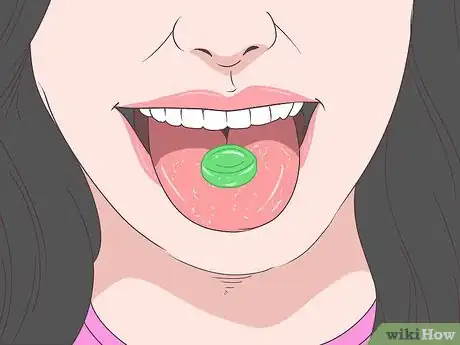


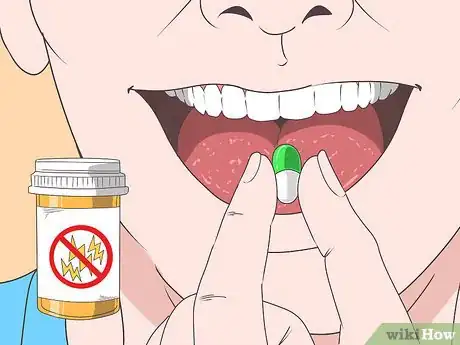



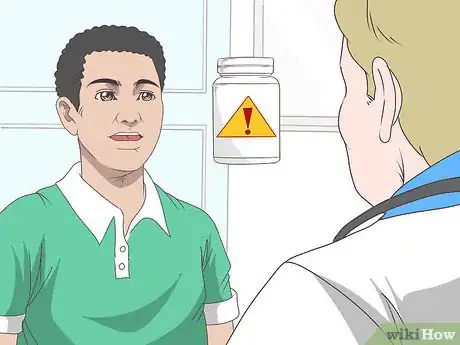


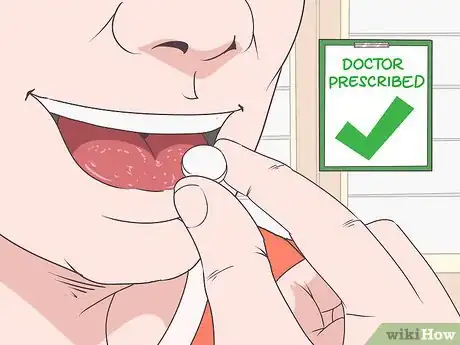
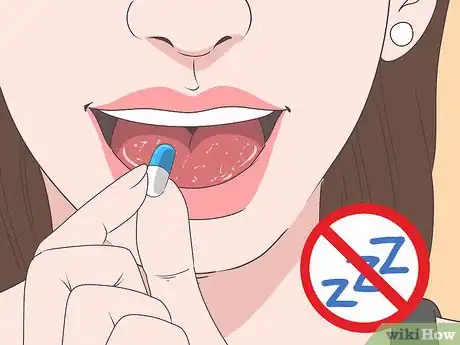








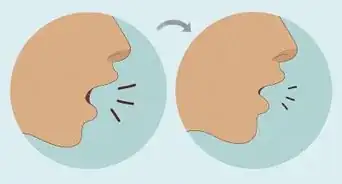



















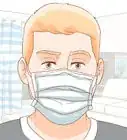





































Medical Disclaimer
The content of this article is not intended to be a substitute for professional medical advice, examination, diagnosis, or treatment. You should always contact your doctor or other qualified healthcare professional before starting, changing, or stopping any kind of health treatment.
Read More...